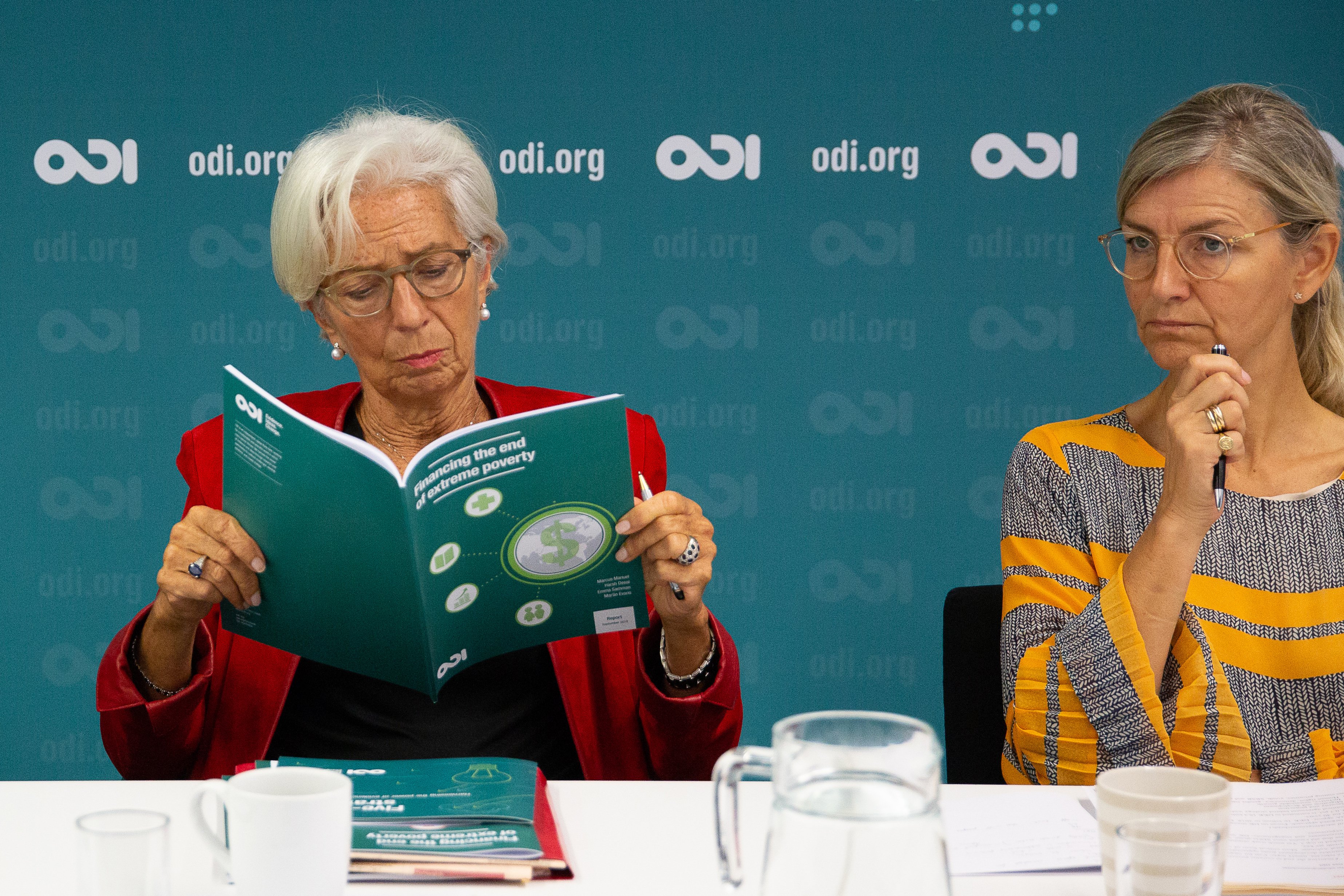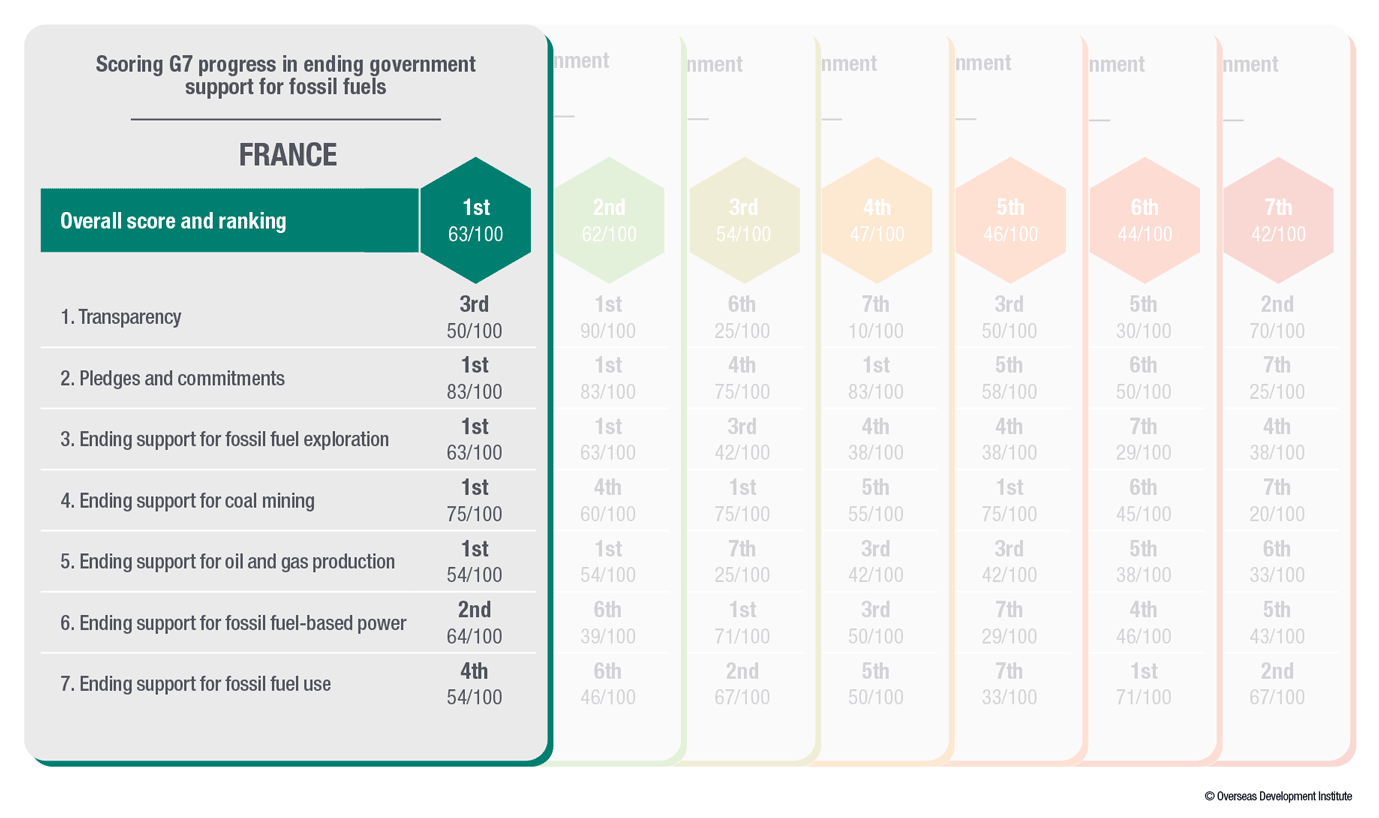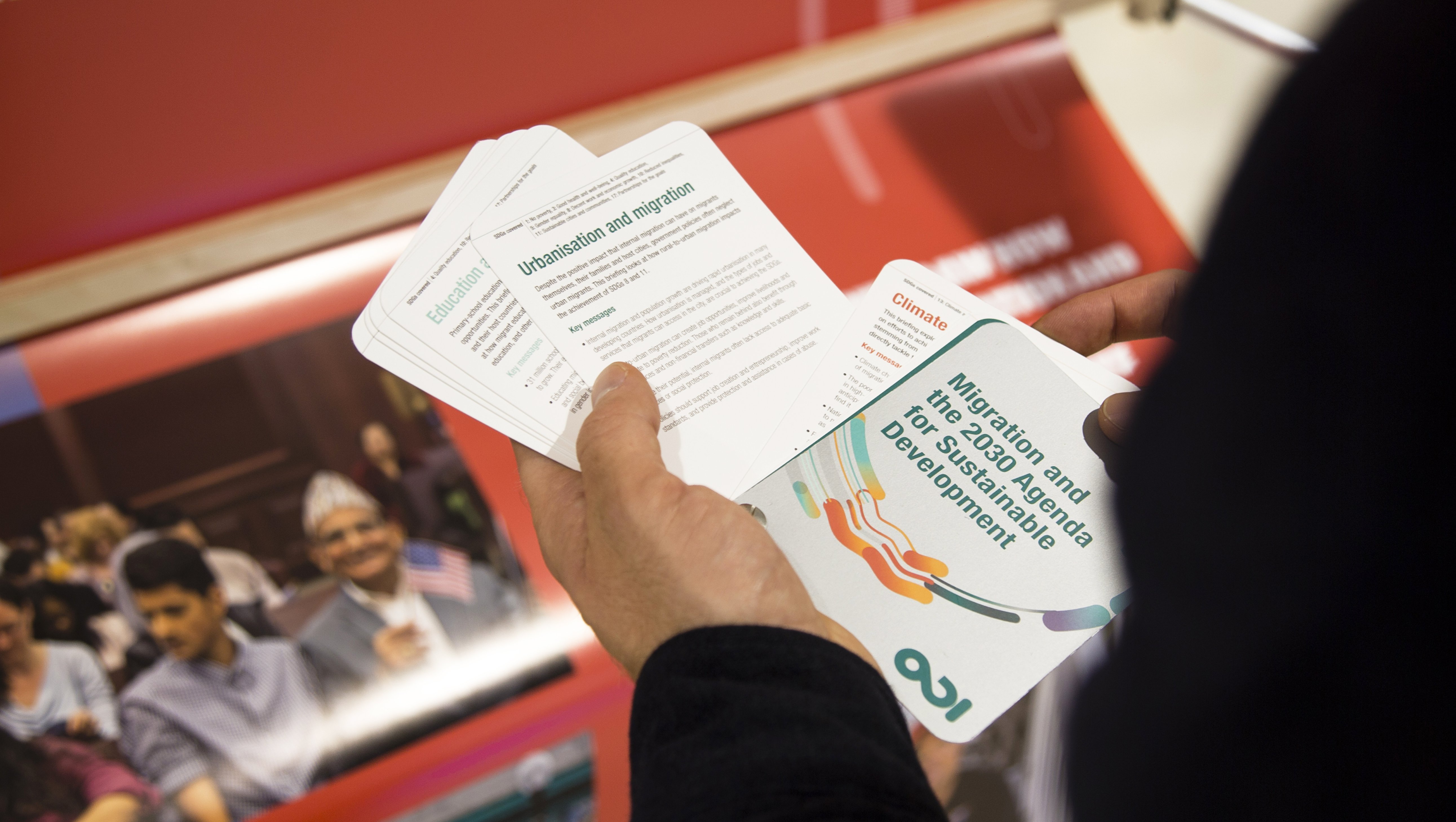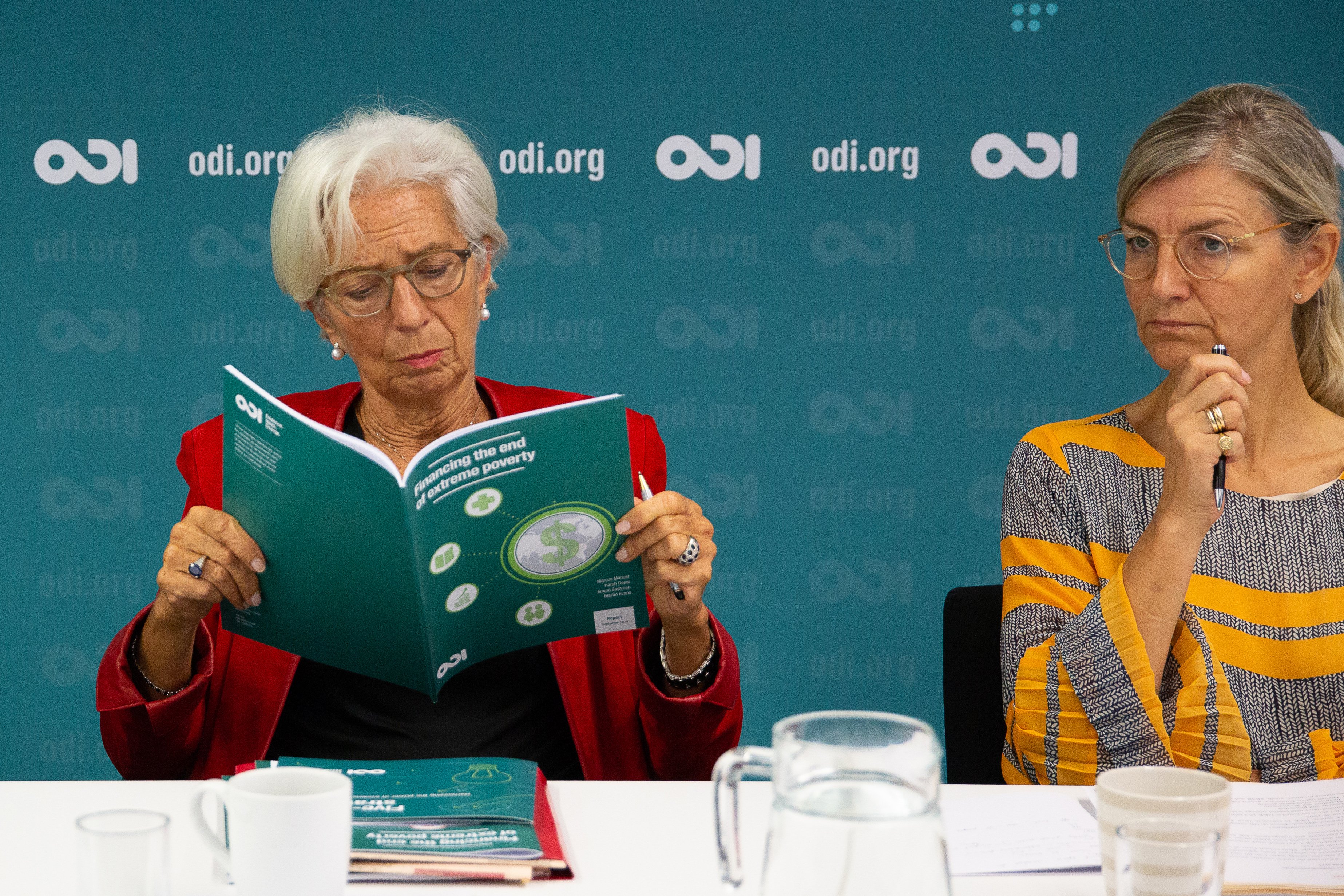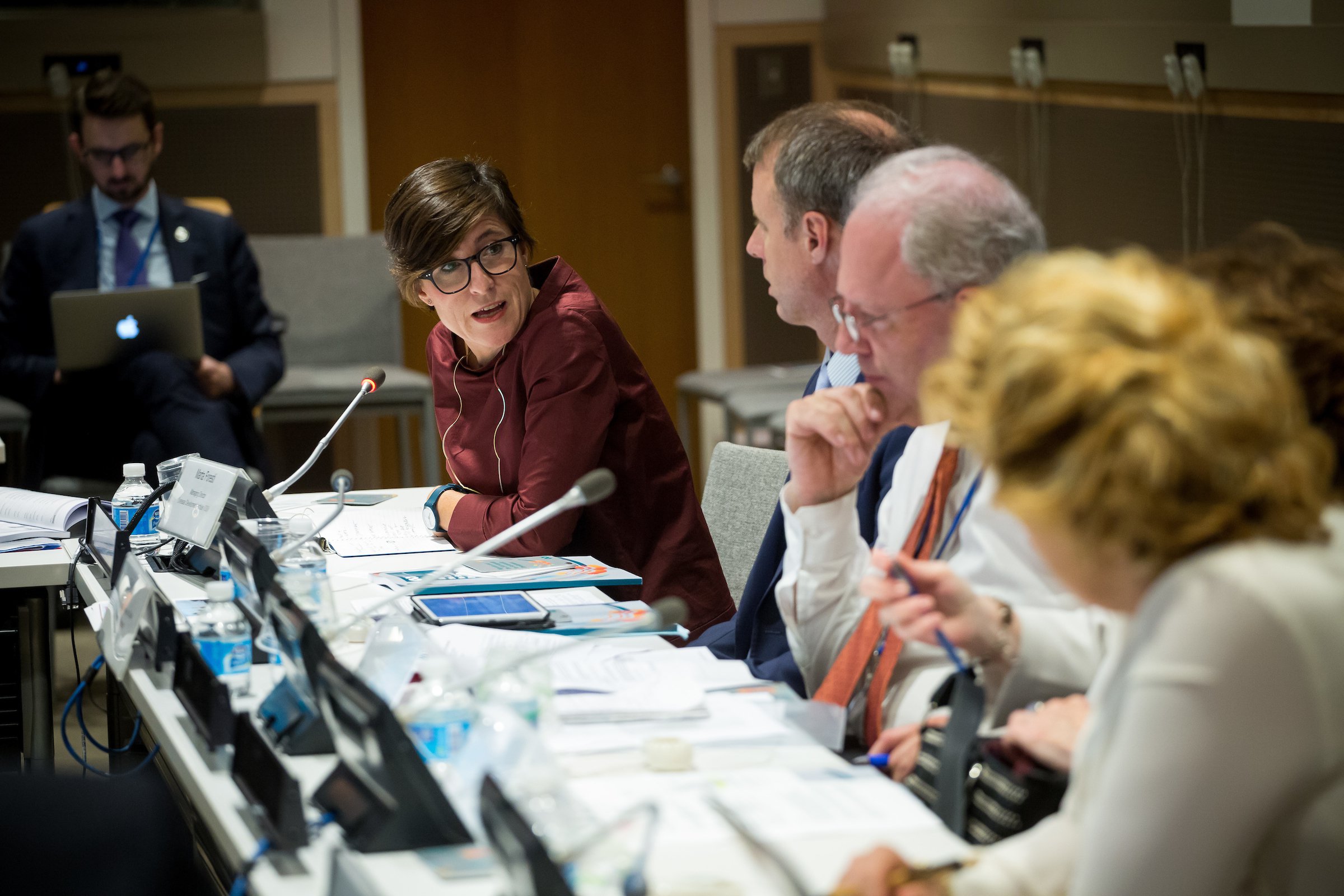In this year's Annual Review, you can explore highlights from our work, delve into some of our most exciting impact stories and take a look at where we've been working around the world. The Review looks back at almost a year and a half of work, covering the end of our previous strategy and the beginning of our new one, which was launched in May 2018. Hover over the tiles below to explore our highlights and scroll down to find out how we've been influencing change.
ODI influences change around the world, across many areas of development. Below are four of our favourite stories of impact from the past year and a half. Find out how we've worked with partners to drive the phase-out of fossil fuel subsidies, spoken truth to power about the reality of Taliban influence in Afghanistan, helped shape the first ever Global Compact on Migration and put the importance of public financing back on the global agenda.
Despite committing to tackle climate change, governments around the world still provide billions of dollars in support to fossil fuels. Over the past five years, ODI has worked with international partners to widen the accepted definition of this support, reveal its extent and drive change towards fossil fuel phase-out.
Impact through partnership
The success of our work on fossil fuels has been in working in partnership with others across advisory, research and campaigning. As an independent research institution and global convenor, ODI is ideally placed to establish common ground between groups that advise and support governments and advocacy organisations that campaign publicly.
Our most recent research – Cutting Europe’s lifelines to coal, Phase-out 2020 and our G7 fossil fuel subsidy scorecard – has helped prompt public debate about the scope and scale of fossil fuel subsidies. It has also enabled our partners to work with governments to drive further commitments and hold them to account for existing pledges; by collaborating on our shared interests and goals, we have extended our reach, influence and impact.
Shifting the UK narrative
In the UK, we have contributed to a significant shift in the narrative and growing understanding and acceptance of a wider definition of subsidies and support, with MPs citing our subsidy estimates, quoting evidence we submitted to the Environmental Audit Committee, and challenging the government on its transparency and Export Finance policy.
Improving transparency across EU Member States
Key changes were made to EU policy based on recommendations in our Phase-out 2020 report, published with Climate Action Network Europe and other Brussels-based partners. In 2018, the European Parliament amended the EU’s monitoring and reporting framework for its 2030 climate and energy targets, strengthening the initial proposal’s vague reference to ‘energy subsidies’ and committing countries to regular reporting. This is an essential first step towards improving transparency and will be critical for holding governments accountable to their climate commitments.
Influencing the G7 and the G20
In June 2018 we launched our G7 fossil fuels subsidy scorecard, which ranked countries’ efforts to eliminate subsidies and made recommendations for progress. One of our project partners, Global Subsidies Initiative (GSI), presented the findings directly to French and Canadian governments. Within the month, G7 host Canada announced a peer review process – which was one of the steps recommended in the policy brief.
As well as the G7, ODI and partners also engaged with G20, T20 and B20 processes, which had an important influence on the joint statement for a sustainable energy transition (PDF). Both G20 and G7 statements have included all countries in the pledges to phase out fossil fuel subsidies (including a strengthening of the G20 statement calling on all governments to complete peer reviews, and a retention of the 2025 deadline for subsidy phase-out under the G7). Our partner GSI is also the only NGO invited to be on fossil fuel subsidy peer review panels under the G20.
16 years after their fall from power, the Taliban are re-emerging to fill Afghanistan’s governance gap. And the group is more coherent than ever before. This year, our report Life under the Taliban shadow government shone a light on this important truth, challenging governments to confront reality and what it means for achieving stability in the country.
Impact through independence
In June 2018, in the wake of Afghanistan’s first unconditional ceasefire with the Taliban and as governments around the world were rethinking their position in the country, we released original evidence and analysis on the group’s continued influence.
The research, based on first-hand interviews with more than 160 Taliban fighters and officials, and civilians living under Taliban rule, conducted across 20 districts in 7 provinces, found that the Taliban continue to govern the lives of tens of millions of Afghans and have solidified control by co-opting existing government structures. The group are able to exert their influence well beyond the areas they can be said to control and do not have to hold territory to govern what happens within it.
Ashley Jackson, author of the report on Life under the Taliban shadow government, discusses key findings from her research in Afghanistan. Watch the report launch event.
It’s a misnomer to call it shadow governance. It’s not separate from the Afghan government. Often what we found, particularly with health and education, is that the Taliban co-opted and redirected the state.
So with education, the Taliban has its own education monitors that go into schools, that modify the curriculum, that take out certain objectionable subjects. They also make sure that teachers are showing up on time. This has been a chronic problem in Afghanistan as well as corruption in basic services, and what the Taliban has done quite cleverly is thought to capitalise on state weakness to show, ‘Hey, we can make teachers show up, we can improve the quality of these services, we are capable of governing.’
If you drive half an hour from Kabul in any direction you’ll be in an area that is under some degree of Taliban influence. So it is that widespread, that far-reaching.
Speaking truth to power
The report’s findings have significant implications for future peace in the region, as well as raising the urgent question of what can and should be done for Afghans now. But they also reveal a reality of which few in the international community are aware, and that fewer still are willing to engage with: Taliban governance is more coherent and extensive than ever before.
ODI’s independence gives us the credibility to present hard-hitting and politically sensitive evidence and analysis to governments that challenges them to change their approach. Several government ministries and defence agencies invited our experts to brief them privately on the research and to discuss, among other things, its implications for policy and peace talks. We also spent significant time in Kabul speaking to decision-makers about their policies on engaging with the Taliban, and the need to change their approach in response to our evidence.
Shaping the debate
The story was picked up widely by the media, including NBC, The Washington Post, Al Jazeera and influential blogs like Task & Purpose. Journalist Lyse Doucet talked about the research on From Our Own Correspondent, while Stephen Sackur challenged the National Security Adviser of Afghanistan to respond to the report’s findings during a HARDtalk interview. The report’s author wrote a feature in Foreign Policy and was invited to appear on the BBC’s Weekend programme to speak to a wide range of issues. The report was ODI’s most-read in 2018, with audiences spending twice as long as the site-wide average on the report page, and it was also mentioned in UK Parliament.
The movement of people around the world is nothing new. In a landmark year, ODI’s high-profile and innovative work contributed to important changes in the migration debate and in international policy, which now recognise the inextricable link between migration and human development.
Impact through innovation
In December 2018, after intense and at times fraught negotiations, the UN General Assembly adopted the Global Compact for Safe, Orderly and Regular Migration (GCM) – the first comprehensive international agreement to address global human mobility. The GCM breaks new ground, and one significant step is its recognition that well-managed migration can help achieve all development outcomes.
Our experts worked collaboratively with key policy- and decision-makers in the GCM process, at times embedded in their teams, to make sure that development and migration priorities would be seen as complementary – both the text and its implementation. We supported the drafting of the GCM text and, as trusted advisors, nuanced the often-polarised political discourse with our evidence and analysis.
We engaged actively with the media to inform the public debate on migration, appearing on the BBC World Service’s Newshour programme and in The Guardian. We also advised the UK Home Office on national immigration policies following our response to a proposed campaign to deter would-be migrants.
Changing the conversation
We have challenged established thinking on how to manage global migration and protect people affected by displacement. Over the past year and a half, we’ve looked at how policies affect migrants’ decision-making, worked to understand public attitudes towards migrants and refugees, and debunked migration myths. This research points to the fundamental reality that human mobility cannot be managed by migration policies alone but requires a comprehensive and coherent approach across policy areas.
For this reason, in October 2018, we launched the Human Mobility Initiative, a platform for innovation and joint action to ‘do migration differently’, run in conjunction with the Center for Global Development and the London School of Economics Institute for Global Affairs. The launch was a huge hit on social media, ranking in ODI’s top-five tweets for 2018 and reaching more than 10,000 people across our Facebook and LinkedIn audiences.
Communicating innovatively
Our migration and the 2030 Agenda research series had significant impact on conversations around key policy processes. In early 2018, we produced an easy-to-navigate fan-deck of key policy messages to cut through the noise at the 72nd Session of the United Nations General Assembly (UNGA72), sharing it with more than 200 States delegations. The fan-deck, which features our iconic graphic, is in constant demand by government officials, NGOs and global diplomats alike.
Building on this work, we launched an exciting interactive data visualisation tool that enables users to explore in different ways how migration affects development. Just two months into its release, the tool has been used more than 6,000 times for an average of over seven minutes per session and has been described as ‘invaluable’ for policy-makers.
Despite progress towards ending extreme poverty, at least 400 million people are projected to still be living on less than $1.90 a day by 2030. This year, our analysis of what is needed to bring this number to zero featured in global debates on financing. Our recommendations were endorsed by leaders from the International Monetary Fund and the Organisation for Economic Co-operation and Development’s Development Assistance Committee, and supported by the UN Deputy Secretary-General.
Impact on the global agenda
In a development debate increasingly preoccupied with private financing, our work on ending extreme poverty put the importance of public financing back on the global agenda. We launched the research just ahead of the United Nations General Assembly (UNGA73) in September, with a private briefing attended by Christine Lagarde, Managing Director of the International Monetary Fund (IMF).
Lagarde echoed the report’s two central recommendations later at UNGA73 in her keynote address to the Secretary-General’s High-Level Meeting on Financing the 2030 Agenda for Sustainable Development, and in her IMF blog, agreeing that ‘advanced economies can do more including by moving towards 0.7% of gross national income in aid … and can also better target their aid …’.
This two-fold challenge to donors was also taken up by the chair of the Organisation for Economic Co-operation and Development’s Development Assistance Committee (DAC), who spoke at our public panel event alongside Sierra Leone’s Finance Minister and the Danish Development Cooperation Minister and attended our breakfast briefing in New York, which included representatives from the g7+ group, United States Agency for International Development and Islamic Relief Worldwide.
She said: ‘the report is very timely’ and agreed that ‘donors need to act differently’. One senior UN official also commented on the work’s timeliness, saying it raised issues that UN Member States would be discussing.
Targeting our evidence and ideas
As well as identifying tangible ways forward, our research was rich with new evidence about the scale of the challenge facing both donors and the wider international community. We put the report’s headline-grabbing numbers – 400 million people still living in extreme poverty by 2030 and a funding gap of $125 billion a year – front and centre of our media outreach. And our efforts to frame the issue positively – ending poverty is possible – set our story apart from those that focus on only the scale of the challenge.
Timing was important. We launched our poverty figures ahead of new projections and analysis from the World Bank and IMF, becoming one in an influential crescendo of voices calling for a focus on those furthest behind first. This amplified our message, and theirs, and the story was picked up by Reuters, Australian Associated Press and more, with the report’s lead author speaking on BBC Worldwide and Voice of America. On LinkedIn, our 60-second video explainer was one of our most popular posts.
The report also set out a brand-new donor efficiency index, which we shared with governments, tagging top-ranking countries in our post on Twitter. High-performing governments were more than happy to share the index’s rankings: it was retweeted by Ireland’s Minister of State for the Diaspora and International Development, who also mentioned it in his address to the Institute of International and European Affairs and the Irish Aid Annual Report, and by Belgium’s deputy Prime Minister, who wrote about the report in his #EndPovertyDay blog.
Click the orange pins for a snapshot of some of our most recent work around the world. The purple pins show where our Fellows are based.
